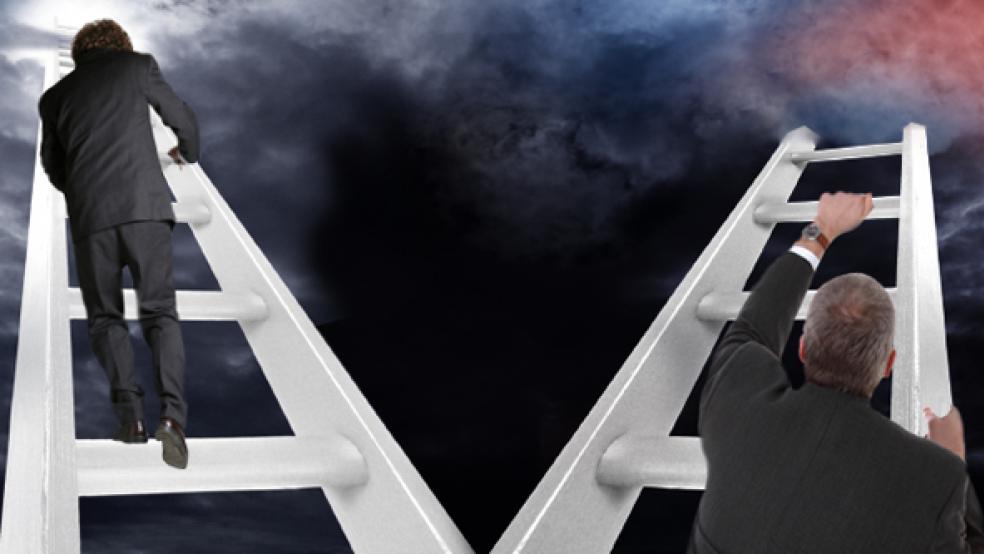Americans are an optimistic bunch, and the notion of America as the land of opportunity remains a powerful one in the public’s mind.
A new study about opinions of economic mobility by two Cornell psychologists found that most Americans believe it is easy for those in the lowest economic rungs to move up — or easier, at least, than is really possible, based on past research. They also think it’s hard for people in the highest rung to move down. The report, authored by Shai Davidai and Thomas Gilovich, was recently published in the journal Perspectives in Psychological Science.
Related: How Obama’s Tax Hikes Actually Hurt the Middle Class
The study is based on surveys of 3,300 Americans in different income brackets. The surveys also found that poorer people believe there is more mobility than rich people do and that political conservatives believe the economy is more dynamic (allowing for more upward and downward movement) than liberals do.
The authors note that the real income of the top 1 percent has risen 86.1 percent during the last two decades, citing the influential work of economists Emmanuel Saez and Thomas Piketty. In contrast, the income of the remaining 99 percent of the population has increased only 6.6 percent.
Related: Why Democrats Are Pushing a $1.2 Trillion Redistribution of Wealth
"Americans as a whole do not seem as concerned as you might expect about this increase in income inequality," Davidai and Gilovich wrote. They note that in 2010 the United States had almost 650,000 homeless people and 46 million people living below the poverty line, a 50 percent increase since 1980.
"A strong faith in the possibility of upward mobility (along with relatively little concern about downward mobility) may dampen people's reactions to prevailing economic inequality," wrote Davidai and Gilovich.
These survey results come at a time when income inequality and stagnant wage growth have become hot-button political issues — and they might suggest that politicians pushing those buttons could find them less effective on the campaign trail than they hope.
Related: Taxing the Wealthy Promotes Economic Growth
"People have a deep desire to believe the economic system is fair, legitimate and just," says Davidai, a doctoral candidate in the field of psychology.
Top Reads from The Fiscal Times:





